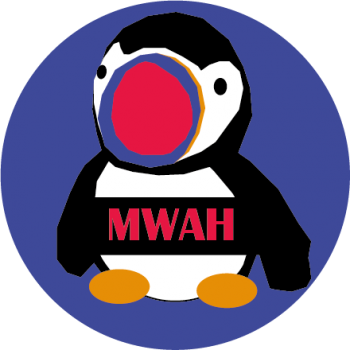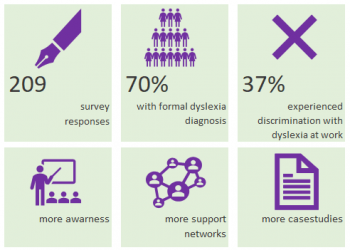 CIfA and Mentoring for Women in Archaeology and Heritage (MWAH) are exploring the potential impacts that dyslexia and other neurodiverse conditions have upon archaeologists, from those who are diagnosed, or feel they are a candidate for the conditions, and from those who work with these individuals.
CIfA and Mentoring for Women in Archaeology and Heritage (MWAH) are exploring the potential impacts that dyslexia and other neurodiverse conditions have upon archaeologists, from those who are diagnosed, or feel they are a candidate for the conditions, and from those who work with these individuals.
Last month we sent out surveys (one for employers and one for individuals) focusing on dyslexia, to help identify issues across the sector and inform actions that we can all take to support our neurodiverse colleagues.

We had 209 replies to the surveys; 192 from individuals and 17 from employers. The infographics here show the headline information.
Next steps
We are very grateful to all the individuals and employers who took the time to complete the survey. There is a lot more detail in the responses and we are taking the time to read these in detail and reflect on what they say. Initially, our next steps will be to
- Host an informal people led coffee chat for all members and non-members about what they want to see happen
- Create surgeries where people with dyslexia can talk to others about themed experiences, ie dyslexia with budgets/ dyslexia in the field/ dyslexia in academia
- Create dyslexia themed resources which will include and links for employers to erase the “dyslexics are stupid” attitude” including more individual case studies – and we’ll be contacting those of you who kindly volunteered to help with these
- Host a dyslexia awareness in archaeology week in October
Current case study
In the latest edition of The Archaeologist, Amy Talbot and Rosie Loftus (MWAH) share their experiences of how dyslexia and dyspraxia have impacted their working lives. Their stories illustrate the importance of encouraging individuals to make employers aware of their conditions, to educate line managers so that they can raise awareness and provide support, and to encourage change to working practices that would be of benefit to all staff.
You can read the article here


